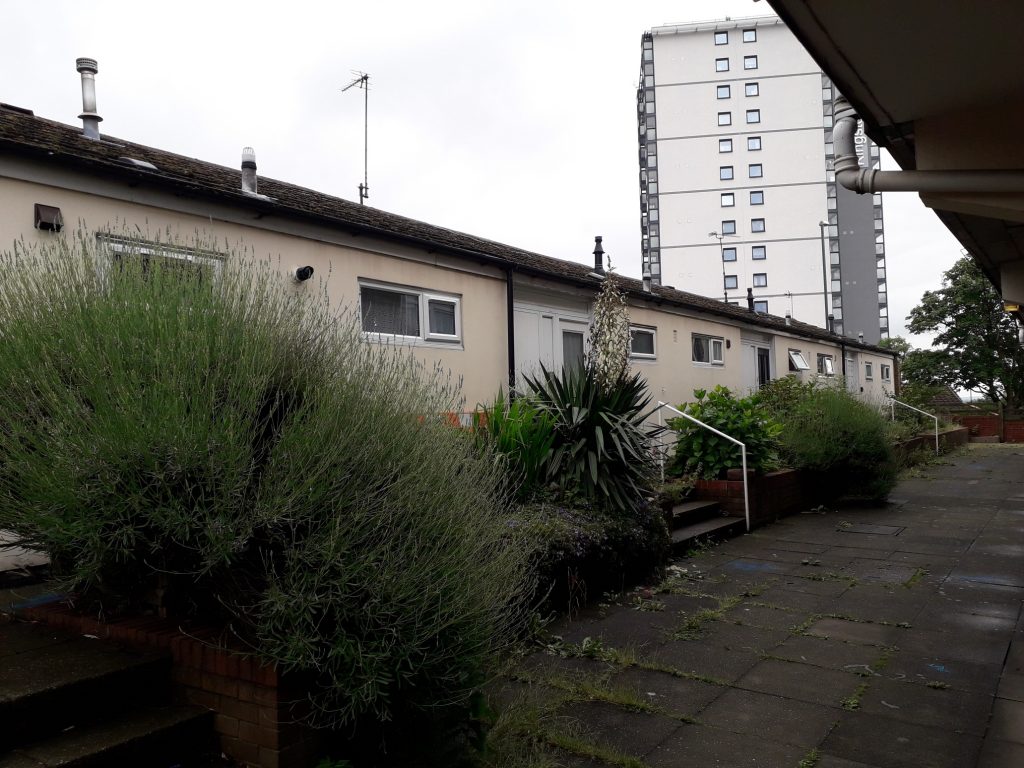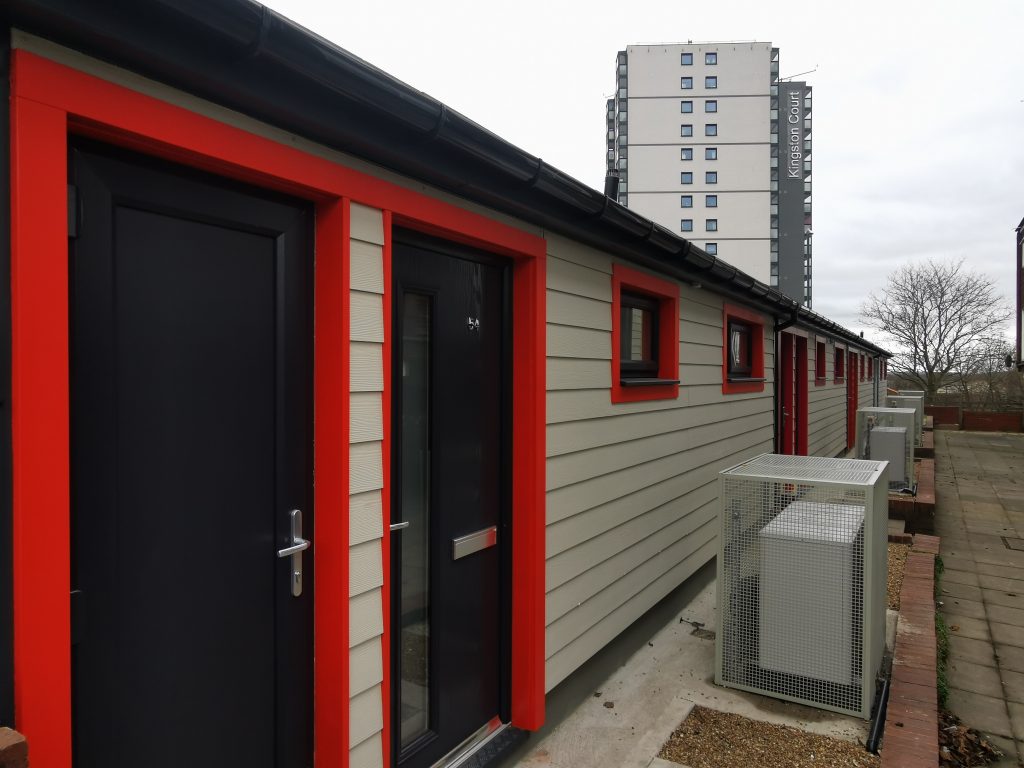A project to introduce innovative energy saving measures to council homes in Nottingham has been completed, with one tenant stating that his new look home ‘feels like a penthouse’.
12 formerly hard-to-heat council homes – five houses and seven bungalows – on Keswick Street in the Sneinton area of the city have been transformed into ultra-low energy homes using the ground-breaking Energiesprong approach. Nottingham was the first place in the UK to pilot this, creating homes that are near net zero carbon.
The improvements to homes in Sneinton include:
- New, energy-efficient heating and hot water systems, powered by air source heat pumps
- The installation of new super-insulated wall panels
- New doors and windows, including new internal window surrounds
- New super-insulated roof structures on the bungalows
- The installation of solar panels and solar batteries for energy storage and distribution.
They are part of the European Regional Development Fund (ERDF) funded Deep Retrofit Energy Model (DREeM) project which will make 138 homes in Nottingham greener and cheaper to run, removing 513 tonnes of carbon dioxide from the air each year. Funding has also come from British Gas’s Eco-Demonstration Action Fund.
The Sneinton project has been delivered by Nottingham City Homes with contractor partner Melius Homes, and recently won Best Large Retrofit Project of the Year at the UK Retrofit Academy Awards.
Nick Murphy, Chief Executive at Nottingham City Homes, said: “I’m delighted that we’re getting such positive feedback from tenants who are already benefiting from these improvements. These homes used to be expensive to heat and the Energiesprong works have reduced fuel bills for people living here, which is a major issue for many people at the moment.”
Councillor Sally Longford, Nottingham City Council’s Deputy Leader and Portfolio Holder for Energy, Environment and Waste Service, said: “The Energiesprong approach has been proved to be a highly effective way of tackling old and cold council housing. Older housing can account for a large proportion of carbon emissions, so projects such as this help towards Nottingham’s ambitions to become a carbon neutral city by 2028.”
Robert Lambe, Managing Director at Melius Homes, said: “We’re delighted that the works we’ve done on this project have been recognised by an industry leading Academy. Modern methods of construction applied to retrofit not only improves the lives of the people who live in these homes and delivers high quality, low energy outcomes, it also enables retrofit to be delivered at scale.”
Emily Braham, Strategy and Operations Director at Energiesprong UK, said: “This project has demonstrated the essence of the Energiesprong approach – adopting modern methods of construction for high-quality retrofit, creating warmer, lower-energy homes where tenants can thrive. With an ever-growing UK energy crisis, we urge other local authorities to follow in Nottingham’s footsteps.”
Before and after photos of some of the bungalows –
European Regional Development Fund
The DREeM project is receiving up to £5.5m of funding from the England European Regional Development Fund as part of the European Structural and Investment Funds Growth Programme 2014-2020. The Department for Levelling Up, Housing and Communities (DLUHC) is the Managing Authority for European Regional Development Fund, which was established by the European Union to help local areas stimulate their economic development by investing in projects which will support innovation, business, and community regeneration.


